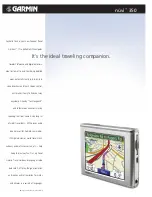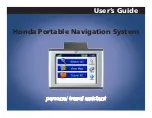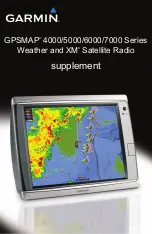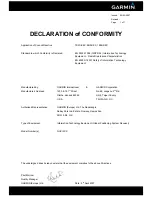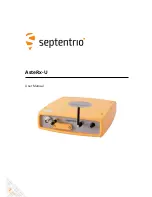
LA000605D © 2007 Navman New Zealand. All rights reserved. Proprietary information and specifications subject to change without notice.
Errors
Errors in message receipt (other than checksum errors) result in the response:
$PTTK,ERROR,xx*CS
where xx is a hexadecimal error code.
Magnetic Variation (Declination)
The Jupiter 32 module does not calculate the magnetic variation.
5.4 Navman proprietary NMEA low power mode messages
Navman has added a number of proprietary NMEA input messages to configure the
TricklePower and Push-To-Fix modes.
5.4.1 Low power configuration
The following message sets the receiver to low power mode:
$PSRF151,a,bbbb,cccc[*CS]<cr><lf>
where:
Field
Description
a
Push-To-Fix (1=on, 0=off)
b
TricklePower duty cycle (parts per
thousand)
c
TricklePower on time (milliseconds)
*
Note that Push-To-Fix does not require fields b and c so
they may be left blank
Table 5-1: Low power modes message values
This message is the NMEA equivalent of the SiRF Binary input message ID 151.
System response:
$PTTK,LPSET,a,bbbb,cccc*CS
The updated values returned by the system are as described in Table 3-1.
5.4.2 Low power acquisition configuration
The following message sets the acquisition parameters of the low power mode:
$PSRF167,aaaaaa,bbbbbb,cccc,d[*CS]<cr><lf>
where:
Field
Description
a
maximum off time (milliseconds)
b
maximum search time (milliseconds)
c
Push-To-Fix period (seconds)
d
adaptive TricklePower (1=on, 0=off)
Table 5-2: Low power acquisition input values
This message is the NMEA equivalent of the SiRF Binary input message ID 167.
System response:
$PTTK,LPACQ,aaaaaa,bbbbbb,cccc,d*CS
The updated values returned by the system are as described in Table 3-2.




















